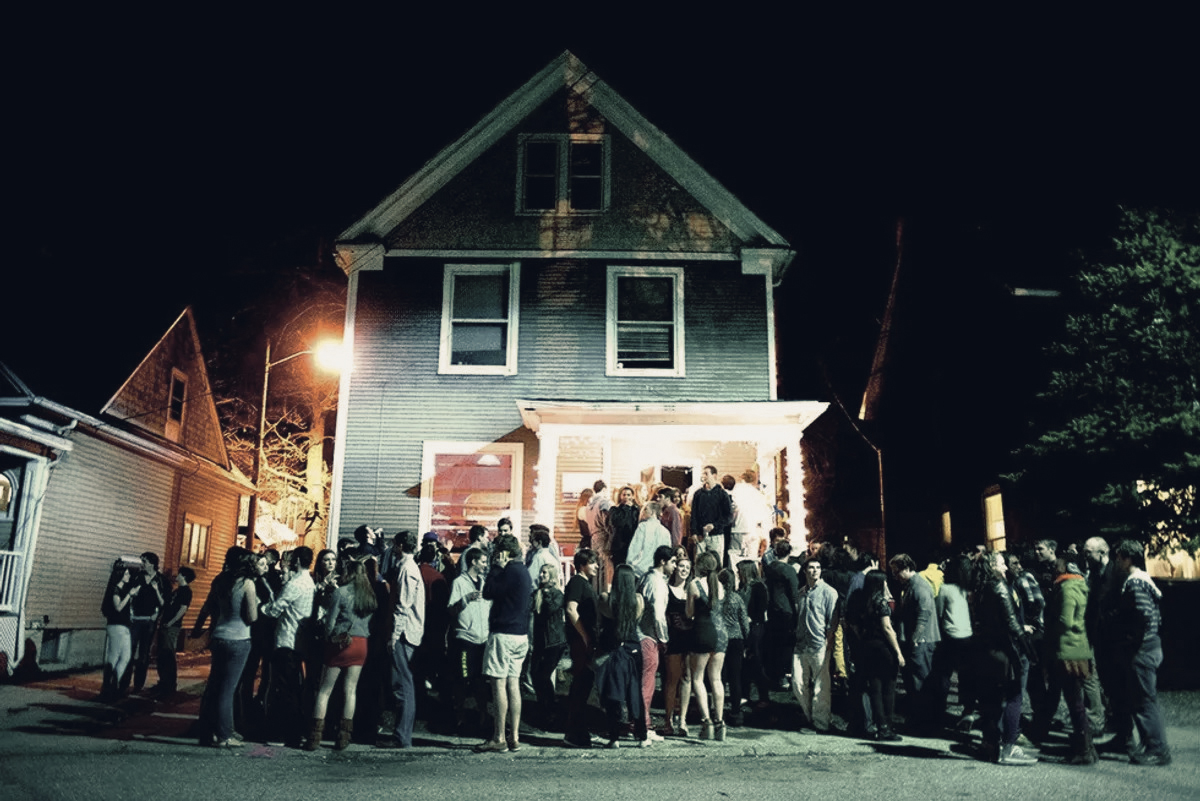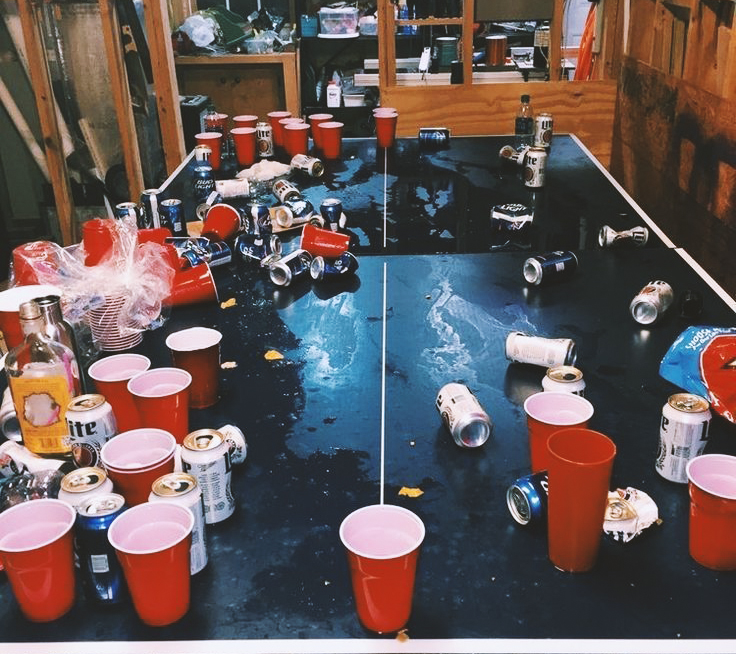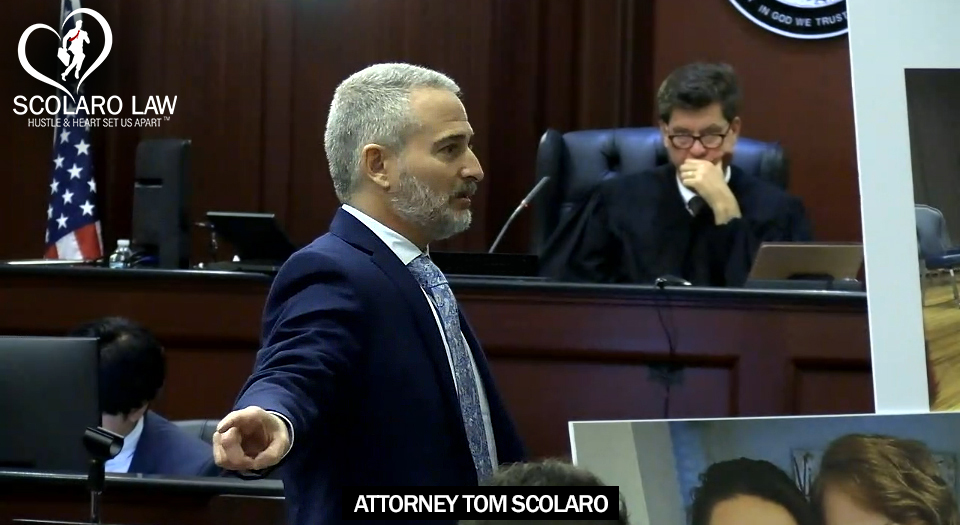
Get Started with a Free Consultation
If you were injured in an incident in Florida, contact us by filling out this form.
"*" indicates required fields
Confidential Settlement on behalf of Rape Victim Against Fraternity for Serving Alcohol at House Party to Underage Female Student
June 26, 2024
Like many students returning to campus after Christmas break, our client attended a house party at a well-known Fraternity house at her university. The various rooms in the Fraternity house featured their own alcoholic beverage(s). One of the rooms also had an outer space, futuristic, and/or alien motif and was serving lean, a mixture of Codeine cough syrup, sprite, hard candy, and at times grain alcohol.
Upon arriving at house, our client was met by members of the Fraternity who were setting up all the alcohol. No one checked her identification or driver’s license to verify her age, nor provided her with any wristband or marking to indicate whether she was of the legal drinking age. Our client and all the other underage girls were able to walk right into the house with no Fraternity member vetting how old they were – that was by design.
Fraternity members offered and furnished alcoholic beverages to our client and other young underage girls. The goal of course was to get as many girls as liquored up as possible. It is a tale as old as time, as completely bereft of compassion as it is originality. As she was taken from room to room, our client was furnished more alcoholic beverages in the form of sake bombs, shots of what she was told was lean, along with other alcoholic beverages.
Numerous witnesses testified in the case, there was also beer, vodka, Kahlua with Baileys -to give the appearance of Guinness- and Margaritas served at the party. As the night progressed, our client inevitably became impaired and utterly unable to protect herself. She was led by a male Fraternity member to the Fraternity house attic. There, our client and the male student began to engage in sexual intercourse. However, when the Fraternity member became violent during the act, our client told the man that she was in pain, that he was hurting her, and that she wanted to stop. At that exact moment, the male student was required by law to immediately stop. Anything less is rape. There is no ambiguity.
Instead of doing what he should have done and stopped all sexual contact, the man became a predator and a monster. He told her that she “could not leave [him] like that.” Taking advantage of her, he forced himself upon her, physically violated her as she cried and told him to stop repeatedly. Once finished with her, he disappeared with no care in the world as to what he had just done and left the party. With her scraped knees and sore body from being raped and physically violated, our client searched for her clothes and phone in the dark. Ashamed by what had happened to her, she left after finding her remaining items, and returned to her dorm across the street, where she was found crying by a residential advisor.
Thomas Scolaro Filed a Lawsuit against the Fraternity for Rape
The legal age to consume alcohol in the State of Florida is 21 years of age. Our client was only 19 years old at the time of her attendance at the party. The evidence showed that Fraternity members willfully and unlawfully furnished alcoholic beverages at the open house party to our client and other known underage female students. At their deposition, several witnesses corroborated the furnishing of alcohol, that our client was visibly intoxicated and impaired as they could smell the alcohol on her breath. Our client’s roommate also testified that she was still extremely intoxicated and in utter shock when she returned to the dorm room, to the point she was stuttering and could not speak coherently or walk straight.
Consent to Sexual Activity Cannot be Given When Intoxicated
Because our client was intoxicated from the furnishing of multiple alcoholic beverages at the Fraternity house, she could not consent to any sexual activity because she was unable to make rational decisions. In Florida, an individual’s legal ability to consent is unequivocally not recognized if they are intoxicated, especially in the case of underage individuals. Consequently, sexual activity with an intoxicated person, particularly a minor, is considered non-consensual, potentially constituting rape or sexual assault under the law due to their inability to give valid consent.
Scolaro Law sought justice for the physical trauma our client sustained that night and for the physical and emotional trauma she endures every single day. Tom Scolaro was also able to prove that the party at the Fraternity house irrefutably constituted an “open house party” defined as a “social gathering at a residence.” Evidence of negligence of the highest-ranking officer and president of the Fraternity tasked with overseeing the Fraternity and its ongoings was set forth and unrefuted by the Defendant. For every rape or sexual assault case he has had the privilege to prosecute in civil court, Tom Scolaro has shown a steadfast resolve to obtain justice, no matter what. In this latest case, he knew to avoid the legal landmines left by the defendant attempting to blame the victim for her injuries, that she consented to the act, or that she was not intoxicated. Attacks by the Fraternity to undermine our client’s credibility were fended off, culminating in a successful confidential settlement.
Fraternities: The Nexus with Campus Rape Culture
The link between fraternities and sexual assault has been a subject of scrutiny for decades. From fostering environments of hyper-masculinity to perpetuating a culture of secrecy and loyalty, fraternities have been implicated in contributing to a climate conducive to sexual violence. Researchers as early as 1989 identified fraternity settings as conducive to sexual coercion, often utilizing alcohol to lower inhibitions and overcome resistance. This combination of factors can lead to situations where rational decision-making is compromised, increasing the risk of assault.

Within fraternity settings, group dynamics play a significant role in perpetuating sexual violence. Studies indicate that exposure to peers who condone or participate in sexual violence can influence individual attitudes and behaviors, contributing to a normalization of such conduct. This group mentality not only discourages reporting of misconduct but also fosters an environment where predatory behavior can go unchecked. The statistics are stark: fraternity members are significantly more likely to commit sexual assault compared to their non-fraternity peers, highlighting the profound influence of collective norms and the culture of secrecy.
Challenges of Reporting and Accountability; Statistical Evidence and Institutional Responses
The concept of brotherhood within fraternities often prioritizes loyalty over accountability, creating barriers to reporting and addressing instances of sexual misconduct. This culture of loyalty can dissuade individuals from speaking out for fear of social repercussions or being labeled disloyal. Consequently, incidents of sexual assault within fraternity settings are known to go unreported or underreported, perpetuating a cycle of impunity that only a skilled personal injury attorney like Tom Scolaro knows to break.
Research consistently underscores the heightened risk of sexual assault associated with fraternity membership. Women in sororities, for instance, face significantly higher risks of rape compared to other college women, underscoring the urgent need for systemic change within university cultures.
Calls for Reform and Abolition
Scolaro Law has joined the movement to abolish fraternities, which is gaining momentum among students and advocates who demand more decisive action from university administrations. Calls for systemic reforms are increasing, urging institutions to confront and dismantle the cultural norms and structures that perpetuate sexual violence. Burying one’s head in the sand is no longer acceptable for members of the public who fall victims to the predatory behaviors on display within fraternities.
We join the calls of End Rape on Campus (EROC), a highly active organization and the loudest vocal critic of fraternity culture, and we join Abolish Greek Life Movement. AGLM is a widespread, student-led movement present on numerous college campuses, which specifically calls for the dismantling of Greek life organizations, including fraternities, due to their association with various harmful behaviors and systemic issues.
Florida’s Misconception: Serving Alcohol to Minors at House Parties and Private Gatherings
Many Floridians hold the mistaken belief that it is legal to serve alcohol to minors at private gatherings or house parties if they are supervised by their parents. However, Florida law is clear on this matter. Under statutes such as §856.015 and §562.11, it is illegal for any person, including parents or guardians, to allow or provide alcohol to individuals under the age of twenty-one. §856.015 explicitly prohibits open house parties where minors possess or consume alcohol, regardless of parental supervision. This misconception can lead to serious legal consequences, as Florida law places a strong emphasis on preventing underage drinking and holding adults accountable for ensuring compliance with these strict regulations.
Understanding Florida’s Strict Laws on Underage Drinking and House Parties
As set forth in Florida Statutes §768.125 and §856.015, it is illegal to knowingly serve alcohol to someone who is not of lawful drinking age, and to do so at an open house party – which is not an exception to the law:
Florida Statute §768.125: Liability for Injury or Damage Resulting from Intoxication
Florida Statute §768.125 addresses the liability related to the sale or furnishing of alcohol. Under this statute, a person or entity that sells or furnishes alcoholic beverages to another person is generally not liable for any injury or damage caused by or resulting from the intoxication of the person to whom the alcohol was provided. However, there are specific exceptions to this rule:
- Knowingly Serving Minors: If a person willfully and unlawfully sells or furnishes alcoholic beverages to a person who is not of lawful drinking age, they can be held liable for any injury or damage caused by or resulting from the minor’s intoxication.
- Habitual Drunkards: If a person knowingly serves alcohol to someone habitually addicted to alcohol, they may also be held liable for any resulting injury or damage.
This statute aims to delineate the conditions under which alcohol providers can be held responsible for the actions of intoxicated individuals.
Florida Statute §856.015: Open House Parties
Florida Statute §856.015 pertains to the responsibilities and liabilities associated with hosting open house parties. An open house party is defined as a social gathering at a residence where alcohol or drugs are consumed. The statute imposes specific duties on the host:
- Prohibition of Underage Drinking: The statute makes it unlawful for a person in control of the residence to allow an open house party to take place if the person knows that alcoholic beverages or drugs are being possessed or consumed by minors (individuals under the age of 21) at the party.
- Reasonable Measures: The host is required to take reasonable steps to prevent the consumption or possession of alcohol or drugs by minors. If the host knows that minors are consuming or in possession of these substances and fails to take reasonable action to prevent it, they may be subject to legal penalties.
Violations of this statute can lead to misdemeanor charges, reflecting the state’s commitment to preventing underage drinking and drug use at private gatherings.
These statutes highlight Florida’s approach to addressing issues related to alcohol consumption, focusing on the responsibilities of both sellers and private individuals in controlling the use of alcohol, particularly among minors.
Seeking Help: Support from RAINN for Sexual Assault Survivors
Scolaro Law wants to highlight the invaluable resources provided by RAINN (Rape, Abuse & Incest National Network). RAINN is the nation’s largest anti-sexual violence organization and operates the National Sexual Assault Hotline. This hotline is run in partnership with over 1,000 local sexual assault service providers across the country, ensuring that support is accessible to all. If you or someone you know has been sexually assaulted, please know that help is available. You can chat online at online.rainn.org or call the hotline at 1-800-656-4673 for immediate assistance.
Contact Scolaro Law Today
If you or a loved one has been a victim of sexual assault, including in situations involving fraternities or university campuses, we encourage you to contact our firm immediately. Our experience and determination are unmatched, and we pride ourselves on maintaining the highest standards of professionalism and expertise. Unlike other firms, we ensure constant and clear communication while remaining sensitive to the trauma you have endured. We represent every single client aggressively, transparently, and we never deviate from the main objective which is to secure the best possible outcome in your case.

